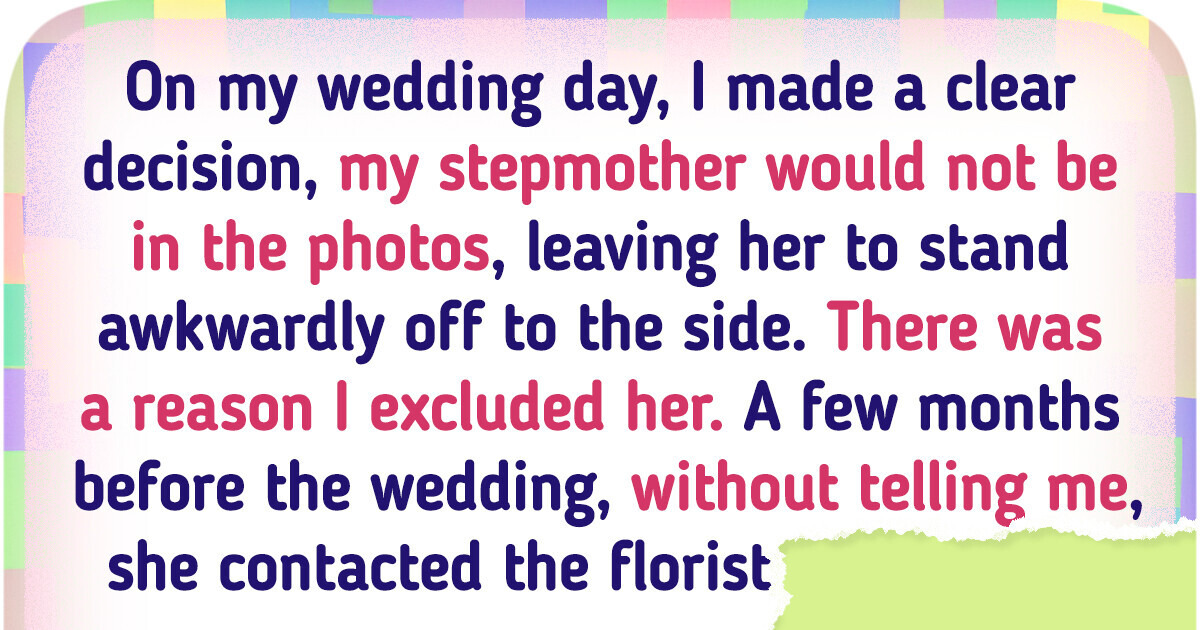I Refused to Have My Stepmother in My Wedding Pictures / Bright Side
Weddings are meant to be happy times, but for this woman, it became her chance to stand up for herself—and put her stepmother on the spot in front of everyone. But, what made her go for such a bold move? There was a reason behind the decision, and here’s the full story of what happened.
She aimed to embarrass her stepmother in front of everyone. But was she right?

That’s a complex situation to handle, but the tips we’ve gathered for you might help you navigate it more smoothly.
Set boundaries early.
- From the outset, it’s important to make clear what your expectations are, especially in family relationships where overstepping can be common. It might have helped to have a frank conversation with your stepmother about the boundaries around your wedding planning, particularly on decisions that directly affect you.
Don’t feel guilty for prioritizing yourself.
- It’s easy to get caught up in the emotions of family dynamics, but your wedding was about you and your partner. Your feelings and decisions were valid, and taking charge was your way of ensuring the day was as you envisioned. You don’t need to justify standing up for yourself, especially when it’s about your own boundaries.
Invoke humor as a shield.
- If you find yourself in a heated moment with your stepmother (or anyone), sometimes humor can defuse the tension and bring the focus back to the positive. Instead of being defensive about the floral arrangements or photo decisions, you could say something like, “Well, at least the flowers will be unique—too bad I’m not sure if they’ll match my mood now!” It makes light of the situation while still conveying your point, allowing you to stand firm without escalating things further.
Use a “non-negotiable” list.
- Before involving anyone else, create a list of non-negotiable things for you—these are the things you are not willing to compromise on. For example, if the flowers were a non-negotiable item, you could establish that early on with your stepmother and others involved in the planning. Sharing this list ahead of time gives people a clear understanding of what matters most to you and helps prevent unwanted changes.
Communication is key, even after the event.
- While the moment was tense, the best way to resolve any underlying issues is through post-event communication. After the wedding, a heartfelt conversation might have helped address any lingering feelings. For example, “I understand that you were trying to contribute, but the changes to the flowers really hurt my feelings, as it was something important to me. I would appreciate it if we could have an open discussion about boundaries moving forward.”
Focus on what’s truly important.
- A wedding is about the couple and their journey. While this story reflects a powerful moment of standing up for yourself, it also serves as a reminder that the most important thing is the commitment being made, not the details that others might try to control. In retrospect, perhaps a bit more perspective could have helped. For example, reminding yourself, “In the grand scheme, this is about my partner and me,” could have alleviated some of the tension.
We have a similar story of difficult family dynamics, where a woman was excluded from her sister’s wedding due to guest limitations.








